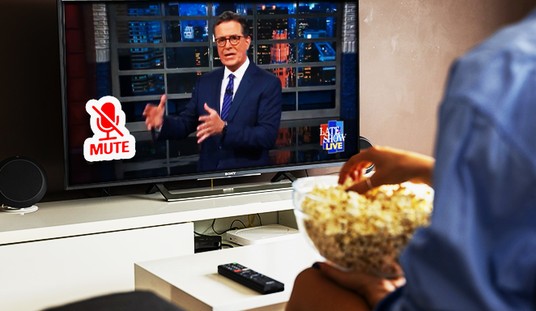Palpable frustration from a guy who’s worked with them on immigration and is trying to work with them on Syria amid the endless, endless bumbling. Money line: “He’s a diminished figure here on Capitol Hill, I can assure you that.” Is O really uncomfortable being C-in-C, though? If anything, sometimes he seems too comfortable, ignoring his own lawyers to intervene in Libya or firing missiles at people on the ground in Pakistan and Yemen whom the CIA thinks are jihadis without knowing for sure. He ran as a civil liberties candidate in 2008 and then, in the name of protecting the country from terrorism, actually rolled back restrictions that Bush had placed on the NSA. A guy who refers to the armed forces as “my military” doesn’t sound uncomfortable.
He looks like a schmuck on Syria not because he’s afraid to use military force but because he’s afraid of flushing what little is left of his domestic political capital on a strike that pretty much everyone except him, McCain, Corker, and a few other hawks thinks is a terrible mistake. He was prepared to hit Assad after the Damascus gas attack but got cold feet at the thought that it would achieve little strategically and would only annoy a war-weary public. So he went to Congress on the assumption that they’d back him up, as they almost always do when the president wants war, but that blew up in his face when they decided not to go for it either. Then Putin swooped in to throw him a lifeline and of course he seized on it because, as humiliating as that is, it’s his least humiliating option right now. Frankly, I’m not sure what Corker was expecting from Tuesday’s speech. Of course Obama BS’d him in private about calling for a muscular response to Assad; that’s been the White House approach all along — BS the hawks by telling them what they want to hear (red lines, international norms), BS the doves by telling them what they want to hear (an unbelievably small strike) and hope you get to 218 that way. It’s hopelessly muddled, as Corker groused to Politico, and actually hugely counterproductive in that it gives both hawks and doves reason to believe that O will either be more timid or more aggressive in his attack than he told them he’d be. So when push came to shove, fearing that an unpopular strike would push him irretrievably into lame-duck territory, he backed down and took Putin’s deal. It was triage on his credibility at home, not discomfort at using force.
If it’s any consolation to Corker, though, we’re probably headed for an attack on Assad anyway. Sharp points from Ryan Lizza:
One danger of a successful United Nations resolution is that it puts the U.S. on the same path as in Iraq: a cat and mouse game with inspectors, repeated confrontations over compliance, and mission creep that draws the U.S. inexorably into a war. Indeed, a United Nations resolution similar to the French proposal, which sets up a strict schedule for Assad to give up his weapons and includes penalties for noncompliance, would immediately increase America’s military commitments in Syria. Currently, Obama’s red line for intervention has been the use of chemical weapons. The resolution being considered at the U.N. would change that standard to the possession of chemical weapons. Obama would face the same pressures that both Bill Clinton and George W. Bush faced along the road to war against Saddam: a dictator defying the U.N, hawks in Congress pressing for régime change, a sympathetic opposition begging for more help. Perhaps this is why McCain, along with several other senators, was working on a new congressional resolution this week backing a United Nations resolution that includes the use of force against Syria for noncompliance.
Of course, given that China and Russia seem intent on blocking anything meaningful at the U.N., perhaps the diplomatic route is doomed, anyway, and perhaps Obama will soon be back to Congress asking again for authorization for a limited strike. And perhaps Putin’s shenanigans and a failure at the U.N. will buy Obama some extra support in Congress. It could even be a preferable course. A unilateral strike of the type Obama was originally considering has both less reward and less risk than what he’s trying to accomplish at the U.N. It would not disarm Assad of his chemical weapons, but it also has less of a chance of drawing the U.S. deeper into the war. A tough U.N. resolution, on the other hand, could be Obama’s way out—or it could be our country’s way in.
I can’t imagine O going back to Congress and risking defeat again if Assad drags his feet on complying with the UN but Lizza’s right that Putin’s scheme will force O to do another round of triage on his credibility. If Syrian compliance turns into the time-buying charade everyone expects, Obama will have to decide if he’s willing to play along with the charade in the name of getting Syria off of America’s agenda or if he needs to do something “unbelievably small” yet potentially risky to send a message to Assad. If he chooses the first option, he’ll lose credibility abroad for having abandoned his red line but then he can focus on domestic matters. If he chooses the second, he’ll preserve a little (and only a little) credibility abroad but could suffer a backlash at home, especially if the war escalates. He made a Faustian bargain with Putin. Oh well.








Join the conversation as a VIP Member